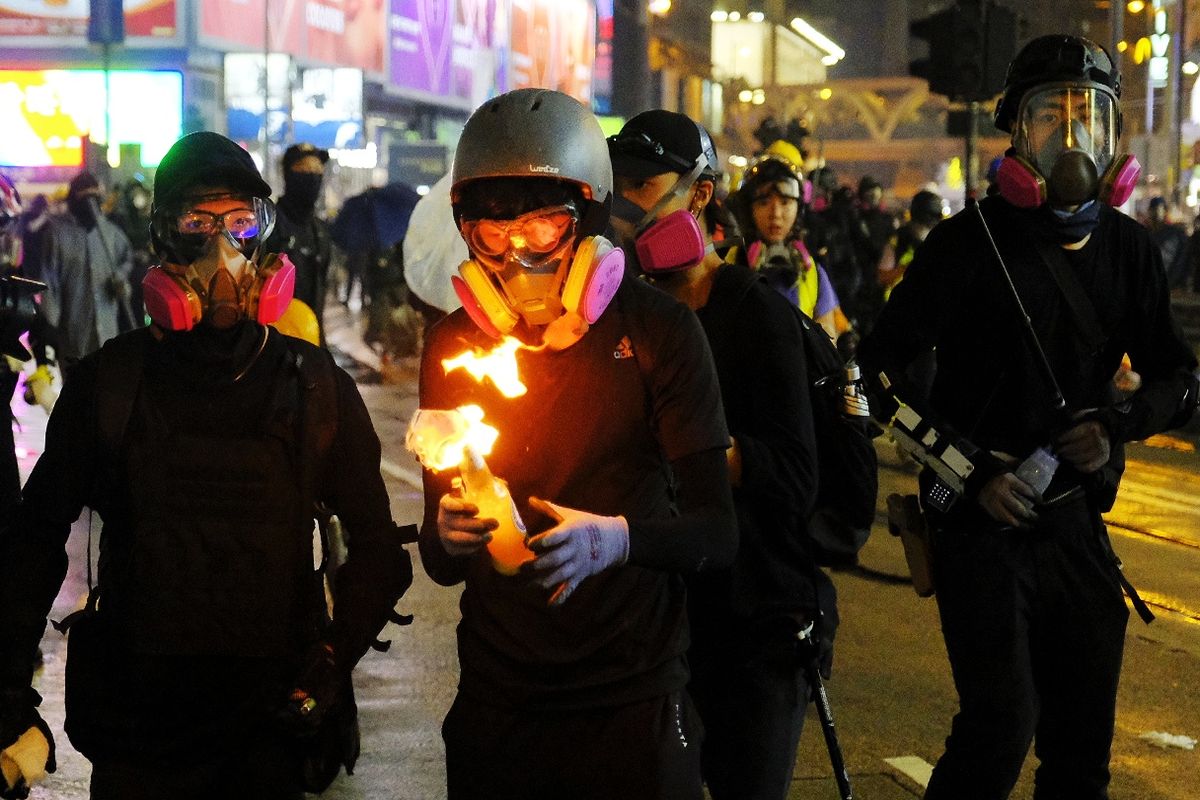Putin plays with f ire in his new doctrine
Of late Vladimir Putin has shifted Russia’s nuclear doctrine to a more directly and openly retaliatory posture in response to any attack by Ukraine or any NATO country using longer-range US missiles.
Two former pro-democracy politicians, Yeung Sum and Lee Cheuk-yan were also arrested on Friday morning, according to state news outlet RTHK.

A rioter is about to throw a Molotov cocktail at the police in Causeway Bay of south China's Hong Kong (Photo: IANS)
Three pro-democracy figures, including a newspaper founder, were arrested and charged in Hong Kong on Friday over a banned protest held in August 2019 amid anti-government demonstrations that gripped the city.
In the early hours of the day, police arrested Apple Daily founder and media mogul Jimmy Lai for illegal assembly and intimidating a reporter using foul language during anti-government protests in the city, according to the local media.
The Apple Daily is known to support the pro-democracy movement, and therefore the protests, and for its opposition to the pro-Beijing government.
Advertisement
Two former pro-democracy politicians, Yeung Sum and Lee Cheuk-yan were also arrested on Friday morning, according to state news outlet RTHK.
Yeung is the chairman of the Hong Kong Labor Party and general secretary of the Hong Kong Confederation of Trade Unions.
During a press briefing, Acting Senior Superintendent of Police Wong Tung-Kwong said the police arrested three Hong Kong men aged between 63 and 72 in connection with a case of the illegal assembly during the unauthorized rally on August 31, 2019.
The 72-year-old was also allegedly involved in a case of intimidation on June 4, 2017.
Last week, a popular slogan of Hong Kong’s months-long anti-government protests was spray-painted on the wall outside one of the Chinese Army’s bases in the city.
The eight words in Chinese – “Liberate Hong Kong; Revolution of our times” – were found daubed on the external walls of Gun Club Hill Barracks.
The 11-hectare military site is one of the barracks occupied by China’s People’s Liberation Army since the transfer of sovereignty of Hong Kong from Britain on July 1, 1997.
Demonstrations in Hong Kong began in June following a controversial extradition bill, already withdrawn by the government, but have mutated into a movement seeking to improve Hong Kong’s democratic mechanisms and safeguard the region’s partial autonomy from Beijing.
Hong Kong’s protests are largely leaderless and organised online. They were initially sparked by a now-abandoned attempt to allow extraditions to the mainland but have since morphed into a popular revolt against Beijing’s rule.
In 2018, the Hong Kong government had disqualified the candidacy of another pro-democracy activist, Agnes Chow, for the Legislative Council by-election in March of the same year due to her stance on advocating self-determination for the former British colony.
The controversial China extradition bill was withdrawn in early September but the movement has morphed into a wider campaign for greater democracy and against alleged police brutality.
Advertisement